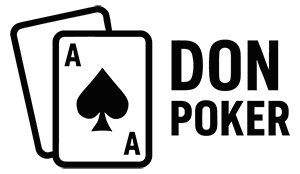Introduction
Ah, the eternal debate: Live poker versus online poker. It’s like comparing apples to… well, something that you can’t eat in your pajamas. Both formats have their pros and cons, but one thing is for certain: each has its own way of exposing our weaknesses faster than a toddler with a crayon on a freshly painted wall. So let’s pull up a chair and take a closer look at which one really highlights our flaws.
Live Poker: Where Tells Are Everywhere
Picture this: you’re at a bustling casino, surrounded by colorful chips, the smoky aroma of desperation in the air, and a dealer who seems to be eyeing your stack like it’s the last piece of pizza at a party. In live poker, every sullen frown and twitch could potentially reveal a leak in your game. Body language becomes your worst enemy if you can’t keep it in check.
For example, if you can’t resist that nervous leg jiggle every time you try to bluff, good luck convincing anyone you’ve got the nuts. The core of live poker is about reading those subtle cues—like when your opponent’s eyes turn into saucers because they’ve just realized they’ve drawn to a worse hand than their ex’s last haircut. Talk about a tell!
Online Poker: Anonymity or Havoc?
Now let’s switch gears to online poker. Ah, the sweet, sweet world of virtual tables, where you can play in your shorts without judgment. No one can see that you’re actually multitasking between the game and watching cat videos, right? But with great convenience comes great risk—specifically in the form of strategic weaknesses you might overlook.
The beauty of online poker is that you can hide behind your screen. Unfortunately, that means you can’t hide from the data. Free to play recklessly like a kid in a candy store, many players dive into poor strategies without realizing they’re basically putting a neon sign above their heads that says, “I’m here to make bad decisions!” Betting patterns become crucial, and if you don’t adapt to occasional loose cannons or the “let me see every flop” types, you might find your bankroll dwindling faster than my will to exercise.
The Psychological Game: Who Wears It Better?
Ah, the mind games. In live poker, if you can keep a straight face while someone across from you is having a mini meltdown, congratulations—you’re officially a poker ninja. One moment of weakness can shimmer through like a shiny new penny if you’re not careful. Remember, you’re not just playing cards; you’re playing humans!
In online play, the psychological warfare takes on a different form. You might find yourself tilting after a ridiculous bad beat, typing out an angry message that usually ends with “I’ll never play this game again.” Spoiler alert: you will. But the anonymity can cause some players to lose track of their emotions and inflict their weaknesses on their own game through reckless behaviors. Trust me, nothing screams “I have issues” like auto-splaying chips everywhere after that one bad hand.
The Weakness Showdown
So which format exposes weaknesses more? Unfortunately, it seems there’s no clear winner. Live poker can make emotional vulnerabilities as visible as neon signs, while online poker allows a false sense of security that can ultimately lead to strategic downfalls. It’s like picking between a rock and a hard place—either way, you’re going to stub your toe!
Ultimately, mastering both formats comes down to recognizing and addressing your weak spots. Embrace the chaos of live games and banish the fearful tendencies of online play. The better you understand your flaws, the less likely you’ll be to throw caution (and money) to the wind.
Final Thoughts
As we part ways, remember that whether you’re playing live or online, poker is one exhilarating rollercoaster ride through your own psyche. Stay cool, stay collected, and for the love of all things poker, keep your tells in check. Play your best game, and may your chips stack higher than your bad decisions!
